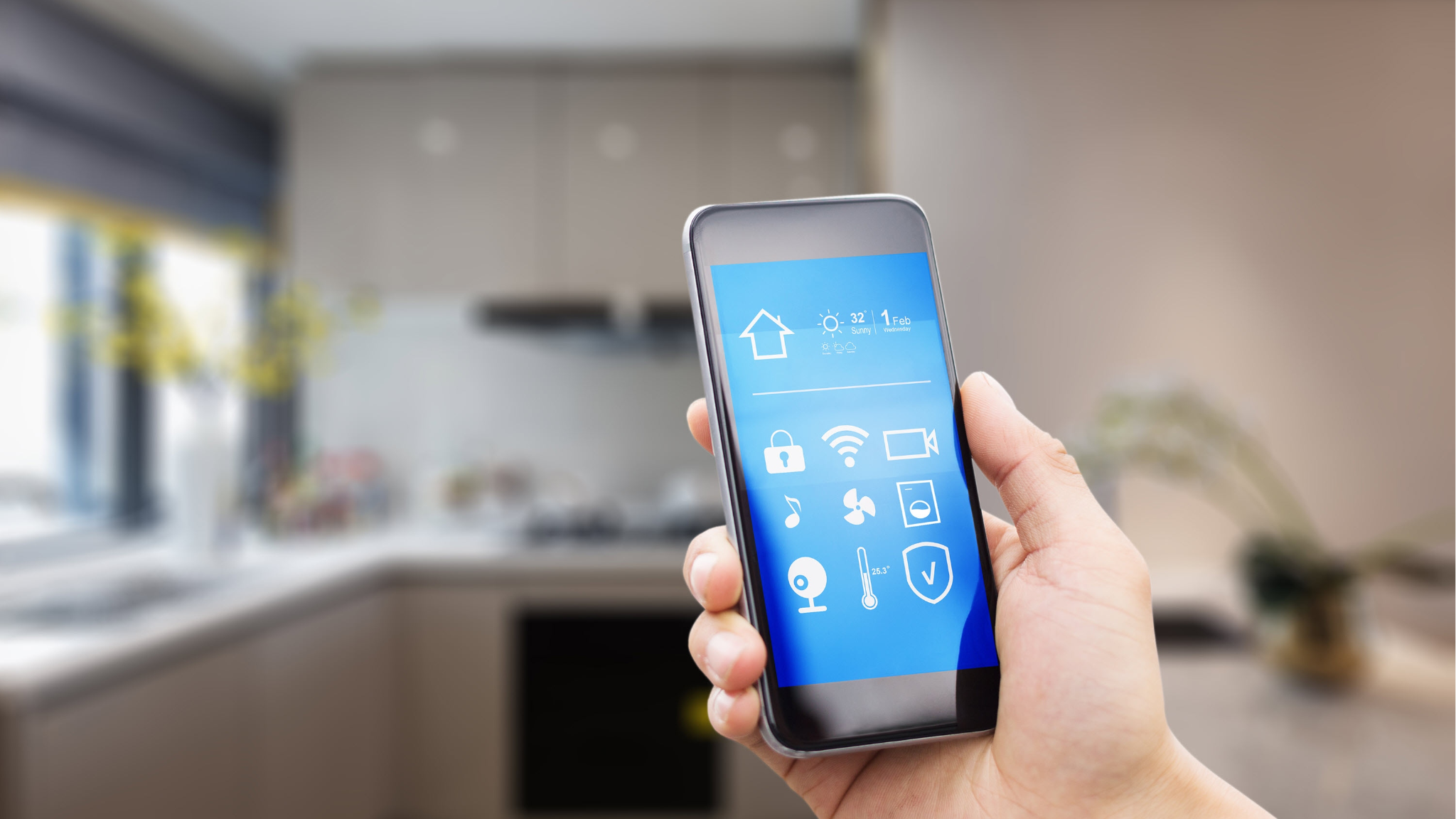Table of Contents
In the modern age, the concept of a smart home has moved from science fiction to a tangible reality. From smart refrigerators to voice-activated assistants and automated lighting systems, our homes are becoming more connected.
However, with this increasing connectivity comes a rising concern: cybersecurity. One effective measure to enhance cybersecurity in smart homes is using a VPN service. A renowned website, VPNRanks, leverages actual user data to determine VPNscores and offers detailed reviews and guides to help you choose the best VPN for your security in UK.
This article delves into the importance of cybersecurity in smart homes, exploring the risks and providing solutions to keep your home network safe and secure.
The Evolution of Smart Homes
Smart homes are equipped with devices that can be controlled remotely via smartphones or computers. These devices are interconnected through the Internet of Things (IoT), allowing for seamless communication and automation.
The convenience offered by smart homes is undeniable—imagine adjusting your thermostat on your way home or receiving alerts when someone enters your house. However, each connected device represents a potential entry point for cyber threats.
Cybersecurity Risks in Smart Homes

The proliferation of IoT devices has led to an increase in cybersecurity risks. Hackers can exploit vulnerabilities in these devices to gain unauthorized access to your home network. This could result in data breaches, unauthorized surveillance, and even physical break-ins. Common vulnerabilities include weak passwords, outdated firmware, and unencrypted communications.
According to an article on Kaspersky, “Many experts believe that with IoT devices, you shouldn’t be thinking about what happens ‘if’ they’re hacked, but ‘when’ because many are easy to hack and offer little protection.”
One of the primary concerns is the lack of standardized security protocols across different devices and manufacturers. Many smart devices are developed with functionality as a priority, often at the expense of security. This makes it easier for cybercriminals to exploit weaknesses in these devices.
Real-Life Examples of Smart Home Security Breaches
Several high-profile incidents have highlighted the vulnerabilities in smart home security. For instance, in 2016, the Mirai botnet attack compromised thousands of IoT devices, including cameras and routers, to launch a massive Distributed Denial of Service (DDoS) attack. This incident underscored the potential for IoT devices to be hijacked and used maliciously.
Another notable example is the hacking of smart thermostats and cameras. In some cases, hackers have taken control of these devices, leading to unauthorized surveillance and even harassment of homeowners. These incidents demonstrate that the threat is not just theoretical but very real.
The Role of VPNs in Enhancing Smart Home Security
One effective way to enhance the security of your smart home is by using a Virtual Private Network (VPN).
A VPN encrypts your internet connection, making it difficult for hackers to intercept your data. By routing your internet traffic through a secure server, a VPN can provide an additional layer of protection for your smart home devices.
VPNs are particularly useful for protecting against Man-in-the-Middle (MitM) attacks, where hackers intercept and alter communications between your devices and the internet. By encrypting your data, a VPN ensures that even if it is intercepted, it remains unreadable to unauthorized parties.
Best Practices for Securing Your Smart Home
- Strong Passwords and Two-Factor Authentication: Ensure that all your devices are secured with strong, unique passwords. Where possible, enable two-factor authentication (2FA) to add an extra layer of security.
- Regular Firmware Updates: Manufacturers often release firmware updates to patch security vulnerabilities. Regularly check for and install these updates to keep your devices secure.
- Network Segmentation: Create a separate network for your IoT devices. This can prevent hackers from accessing your primary network and sensitive data if an IoT device is compromised.
- Disable Unused Features: Many smart devices come with features that you may not need. Disable any unnecessary features to reduce potential entry points for hackers.
- Monitor Device Activity: Regularly check the activity logs of your devices to identify any unusual or unauthorized access attempts.
The Future of Smart Home Security
The future of smart home security lies in developing more robust and standardized security protocols. As the smart home market grows, manufacturers and developers must prioritize security in their design processes. This includes implementing stronger encryption methods, regular security updates, and comprehensive user education on cybersecurity best practices.
Artificial Intelligence (AI) and Machine Learning (ML) are also expected to enhance smart home security significantly. These technologies can help detect and respond to security threats in real-time, offering more proactive and adaptive security solutions.
Cybersecurity in smart homes is paramount in today’s highly connected world. As households become more integrated with smart devices, the potential for vulnerabilities also rises.
Given the advanced role of AI in Cybersecurity, incorporating AI-driven solutions is essential for defending against sophisticated threats that specifically target smart home systems. Ensuring robust cybersecurity measures is critical to safeguarding the vast amount of personal data exchanged within these networks.
Conclusion
The convenience of smart homes comes with the responsibility of ensuring robust cybersecurity measures. As our homes become more connected, the importance of protecting our devices and data from cyber threats cannot be overstated. By following best practices and utilizing tools like VPNs, homeowners can significantly reduce the risk of security breaches and enjoy the benefits of a smart home with peace of mind.
In the evolving landscape of technology, staying informed and proactive is key to safeguarding your smart home. Remember, secure smart home is not just about convenience; it’s about protecting your privacy, your data, and, ultimately, your safety.
By taking the necessary steps to secure your smart home, you can enjoy the benefits of modern technology without compromising your security. Stay vigilant, stay informed, and prioritize cybersecurity in your smart home setup.
FAQ:
What is cybersecurity in the context of smart homes?
Cybersecurity in smart homes refers to the protection of internet-connected devices and systems from digital attacks. These devices include smart thermostats, security cameras, smart speakers, and more, which can be vulnerable to hacking and unauthorized access.
Why is cybersecurity important for smart homes?
Cybersecurity is crucial for smart homes to protect personal data, ensure the privacy of residents, and prevent unauthorized control of home devices. A breach can lead to significant privacy invasions, financial loss, and potential physical harm.
What are common cybersecurity threats to smart homes?
Common threats include malware, ransomware, phishing attacks, and unauthorized access to devices. Hackers can exploit vulnerabilities in devices to steal information, disrupt services, or take control of home systems.
How can I improve the cybersecurity of my smart home?
To enhance cybersecurity, you can:
- Use strong, unique passwords for all devices and accounts.
- Enable two-factor authentication.
- Keep device firmware and software updated.
- Install a reputable security suite on your network.
- Segment your network to isolate smart devices from sensitive data.
What role do manufacturers play in smart home cybersecurity?
Manufacturers are responsible for building secure devices with robust security features and providing regular updates to patch vulnerabilities. They should also educate consumers on best practices for securing their devices.
Are there any specific products or services that can enhance smart home security?
Yes, there are various cybersecurity solutions such as firewalls, antivirus software, and security-focused smart home hubs that can help protect your smart home environment. Additionally, some services offer regular security assessments and monitoring.
What should I do if I suspect my smart home has been hacked?
If you suspect a breach, immediately disconnect the affected devices from the internet, change all passwords, and check for firmware updates. It may also be helpful to consult a cybersecurity professional to assess and mitigate the damage.
How does the future look for smart home cybersecurity?
The future of smart home cybersecurity will likely see increased integration of advanced technologies like artificial intelligence and machine learning to detect and prevent attacks. Enhanced regulatory standards and greater collaboration between manufacturers and cybersecurity experts will also improve security measures.









